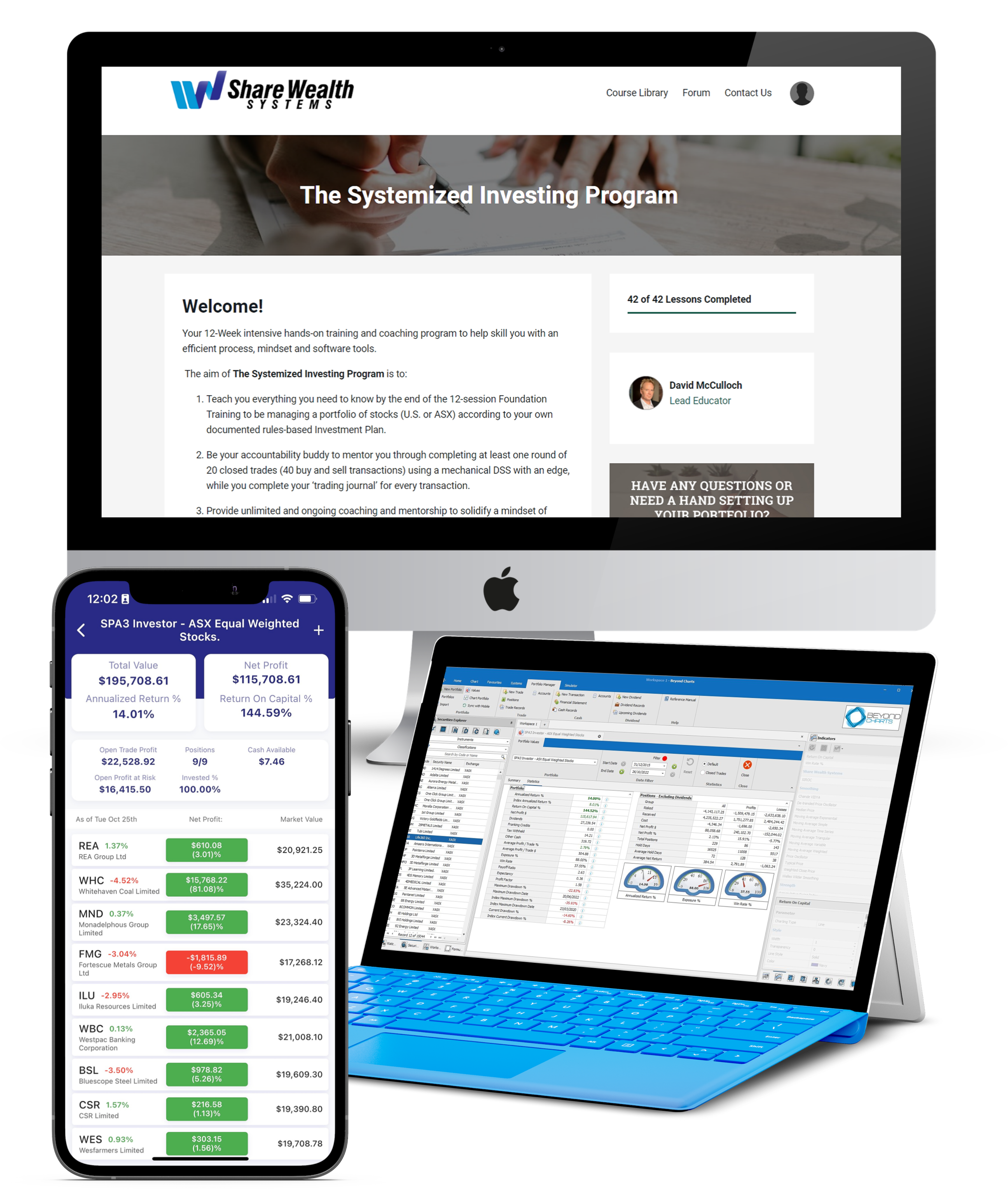This is my last post for 2013 and I want to thank everyone that has contributed their thoughts and experiences on the Gary Stone Journal. I hope that you have enjoyed my commentary and have been able to take away some of the lessons and principles that I have come to learn over the past 2 decades.
This week I will conclude the second part of: “4 Gut Busting Lessons I’ve learnt from my 20+ years in the market”. These final two lessons are sure to get you thinking about the way you engage the markets.
Thank you once again and I look forward to kicking off The Gary Stone Journal in early 2014.
#3 – Eliminate the largest loss trade
These numbers will stagger you.
Do you remember 2007 – 2008 and the time of the Global Financial Crisis? You know, where the market fell 54.5% from its highs.
For me, one particular phone call stands out above the rest. Let me share it with you.
I remember taking a call from a non customer who was investigating SPA3. He asked all the usual questions and was keen to learn more about why SPA3 had performed so consistently over such a long period.
But when I probed him for his story and investment back ground, I became shocked by the conversation.
He confessed that he had a portfolio of around 6 million dollars before the beginning of the downturn, however the portfolio was going through, what he called “a difficult patch”.
When I probed deeper, he confessed that a financial manager was responsible for “looking after” the portfolio and giving him advice. He now wished that he’d been more diligent and involved with his positions and finances.
Finally, he spilt the beans. His 6 million dollar portfolio now stood at just $1.1 million.
When I learnt why, I was not surprised. His financial manager had convinced him not to sell his open positions when they began to fall and in actual fact he said that he was persuaded to buy more… so he allowed them to.
Not only did he not exit when the writing was well and truly on the wall but he also averaged down in the stocks that were being hit the hardest such as Babcock and Brown.
Here’s the lesson…
If the trade does not go in the direction you are trading, you need to be prepared to say “I am wrong, the market is right” and close the position.
You can afford to lose 10%, 15%, 20% and even 25% of your capital in a single trade but once you lose 30% plus in a single trade the task of making your money back becomes increasingly difficult, especially if you have multiple simultaneous losses of this size.
What happens when you lose 50% in a trade. That’s right. You need to make 100% to get your money back. It becomes exponential. The larger the loss trade then the higher the chances you won’t get your money back.
The unlikely fact is that this person will never have enough time to grow his portfolio back to the level that it once was. He will retire comfortably but nowhere near the level that he should have.
#4 – Take responsibility for your decisions and actions
It matters little if you are using an investment manager, managed fund, investment adviser or if you are doing it yourself. Bottom line is that you must take responsibility for your actions and results.
I have had too many conversations with people over the years who blame others for their existing position rather than taking responsibility for the decisions that they’ve made.
If you do not take responsibility for your decisions and actions there will always be someone or something else, i.e. not you, causing you not to perform. This mindset allows you to continue repeating your mistakes… because you reason that it is not you making the mistakes, it is someone else! This means that you will never have to address anything to improve your performance because you will always perceive it to be beyond your control.
Learn to take responsibility for your actions and your outcomes so you can address any shortcomings and move on to grow and improve.



I am 76 years old and have not used any Financial Advisor for years. Most of them are far too young to be able to relate to my age group – they use terms like ” Invest for the long term” – at 76 we do not have a long term, we are already there!
The financial advisory industry needs a shake up in my opinion. The only way it will change is if it’s purely performance based. This will sort out the good from the bad.